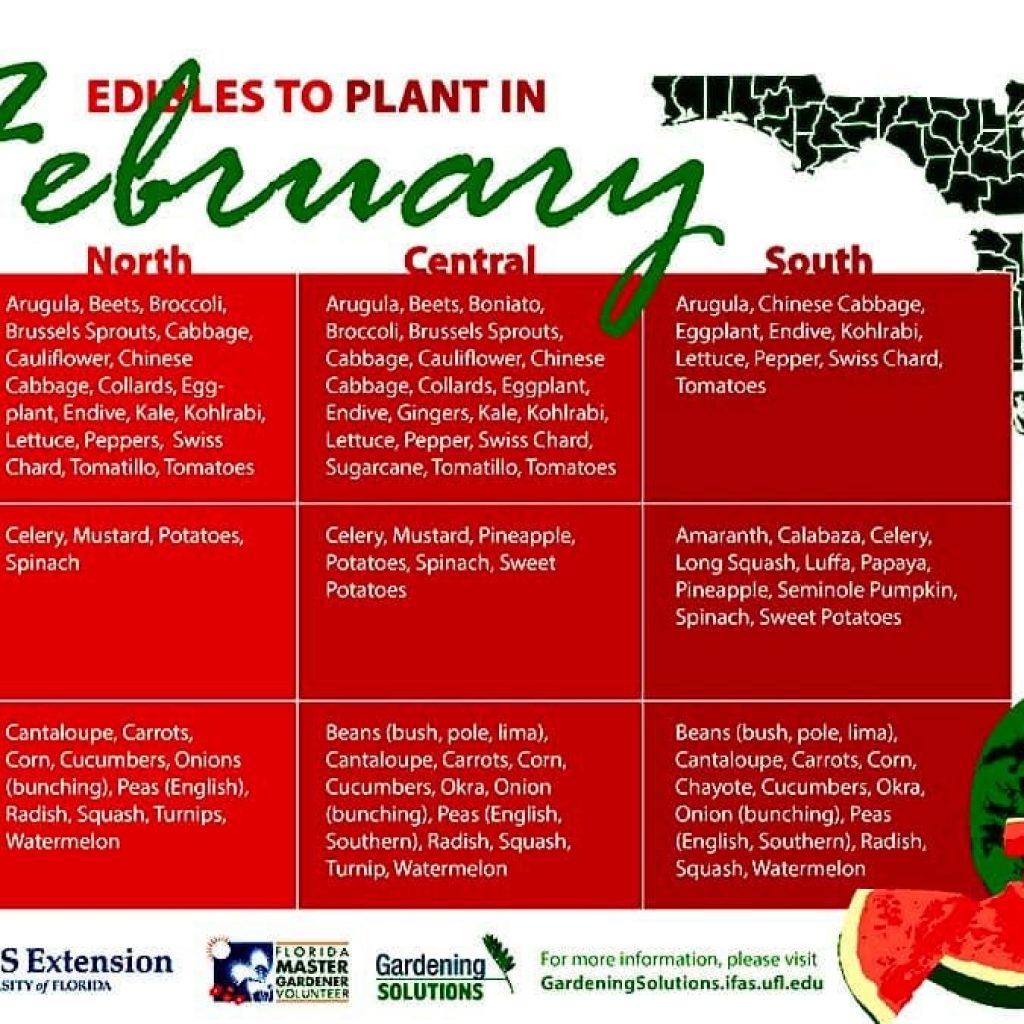
Ready to start your spring garden? Thinking about fresh herbs and vegetables? There’s nothing like a fresh cucumber off the vine. Know what, and more importantly, when to plant:.
In Central Florida, these are the plants that can be started from seed or begin being transplanted:
Easily transplant: arugula, beets, boniato, broccoli, Brussels sprouts, cabbage, cauliflower, Chinese cabbage, collards, eggplant, endive, gingers, kale, kohlrabi, lettuce, peppers, sugarcane, Swiss chard, tomatillo, and tomatoes.
Transplant with care: celery, mustard, pineapple, potatoes, spinach, and sweet potatoes.
Use seeds: beans (bush, lima, pole), cantaloupes, carrots, corn, cucumbers, okra, onions (bunching), peas (English, southern), radish, squashes, turnips, and watermelon.
If you’re new to gardening, remember that weather and temperatures can always be unpredictable. By starting transplants too early or too late you can end up with weak plants or late harvests.
Prepare to start seeds indoors or in greenhouse trays 4-8 weeks before the suggested outdoor planting dates.
For larger plants, like watermelon, squash, and pumpkin, you might transplant in as little as four weeks. Similarly, if you are starting plants in small containers, four weeks may be all it takes for them to be ready to move outdoors.


